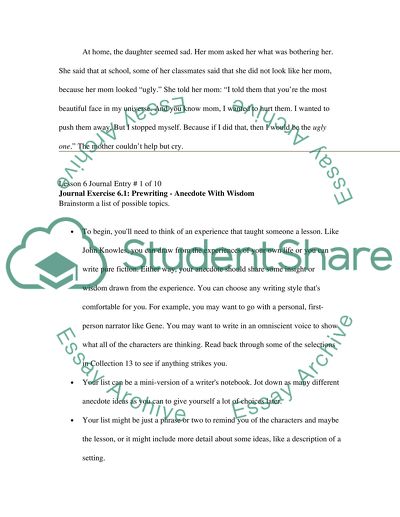Cite this document
(“Anecdotes that relates wisdom Essay Example | Topics and Well Written Essays - 3750 words”, n.d.)
Retrieved from https://studentshare.org/english/1394643-english
Retrieved from https://studentshare.org/english/1394643-english
(Anecdotes That Relates Wisdom Essay Example | Topics and Well Written Essays - 3750 Words)
https://studentshare.org/english/1394643-english.
https://studentshare.org/english/1394643-english.
“Anecdotes That Relates Wisdom Essay Example | Topics and Well Written Essays - 3750 Words”, n.d. https://studentshare.org/english/1394643-english.


